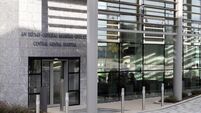Irish Examiner view: Numbers do not add up when it comes to special classes
Every year families seeking special education for their children are left without a school place. Stock picture: Larry Cummins
The revelation in Wednesday's that there were 800 vacant spaces in special classes in schools across the country, flies in the face of the actual experience of many families desperate to secure appropriate education for their children.
For too many years, parents have been stymied in this regard by an apparent lack of any facilities in their areas, yet official figures — revealed as a result of an exercise carried out by the National Council for Special Education (NCSE) at the start of the current school year — recorded 782 vacancies in special classes attached to mainstream schools.













